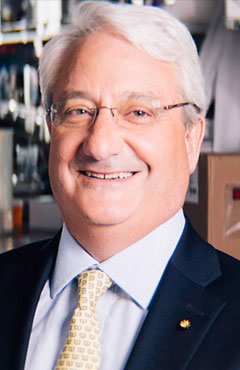- Venue Hilton Woburn Boston, MA, USA
- Dates November 13-15, 2024
- Call +1-815-595-8049
Speakers
David B Weiner
Executive Vice President- Speciality: The Wistar Institute Director
- Company: Vaccine & Immunotherapy Center
- Designation: PhD
Personal Information
Weiner directs a translational molecular immunology research team focused on creating novel immunotherapy approaches for disease prevention and treatment using synthetic nucleic acid technology. Accomplishments of the team and collaborators include the first clinical studies of DNA vaccines, with a focus on advances in gene optimization and electroporation (EP)-mediated DNA delivery. Their work has revitalized the field, rapidly and safely moving new advances into human studies. These include the world’s first Zika vaccine, the first MERS vaccine, an advanced Ebola Vaccine, and a novel HIV vaccine, among others.
Additionally, the Weiner laboratory has helped to develop immunotherapy approaches that are currently in clinical testing for HPV-associated cancer, prostate and other cancers. The first clinically efficacious therapeutic DNA vaccine for HPV cervical intraepithelial neoplasia CIN) has moved into a Phase 3 trial (REVEAL). Weiner and his lab have received several awards/honors for their accomplishments, including the Vaccine Industry Associations Outstanding Academic Research Laboratory (2015 & 2016), being named one of the Top 20 Translational Research Laboratories of the Year (Nature Biotechnology 2016, 2017 & 2018) and the 2014 Stone family Award for Cancer Research. Weiner was named one of the nation’s top 40 most influential vaccine scientists in 2014, received the 2011 NIH Directors Translational Research Award and is an elected fellow of the American Association for the Advancement of Science since 2011 and a fellow of the International Society for Vaccines, for which he served as president from 2018 to 2020. Weiner is an avid trainer, advisor and advocate for students, fellows and junior faculty as he is highly committed to developing the careers of young scientists.
Weiner received his B.S. in biology from Stony Brook University, N.Y., and his M.S. in biology from the University of Cincinnati. He then earned a Ph.D. in developmental biology with a focus on molecular immunology from the University of Cincinnati, College of Medicine. Weiner joined the University of Pennsylvania as a research fellow in the Department of Pathology and Laboratory Medicine, where he rose through the ranks to become Professor. He held a second appointment from The Wistar Institute from 1990 to 1993. At Penn, he served as co-chair of the Tumor Virology Program of the Abramson Cancer Institute and as chair of the Gene Therapy and Vaccine Training Program.
Executive Vice President, The Wistar Institute, Director, Vaccine & Immunotherapy Center







